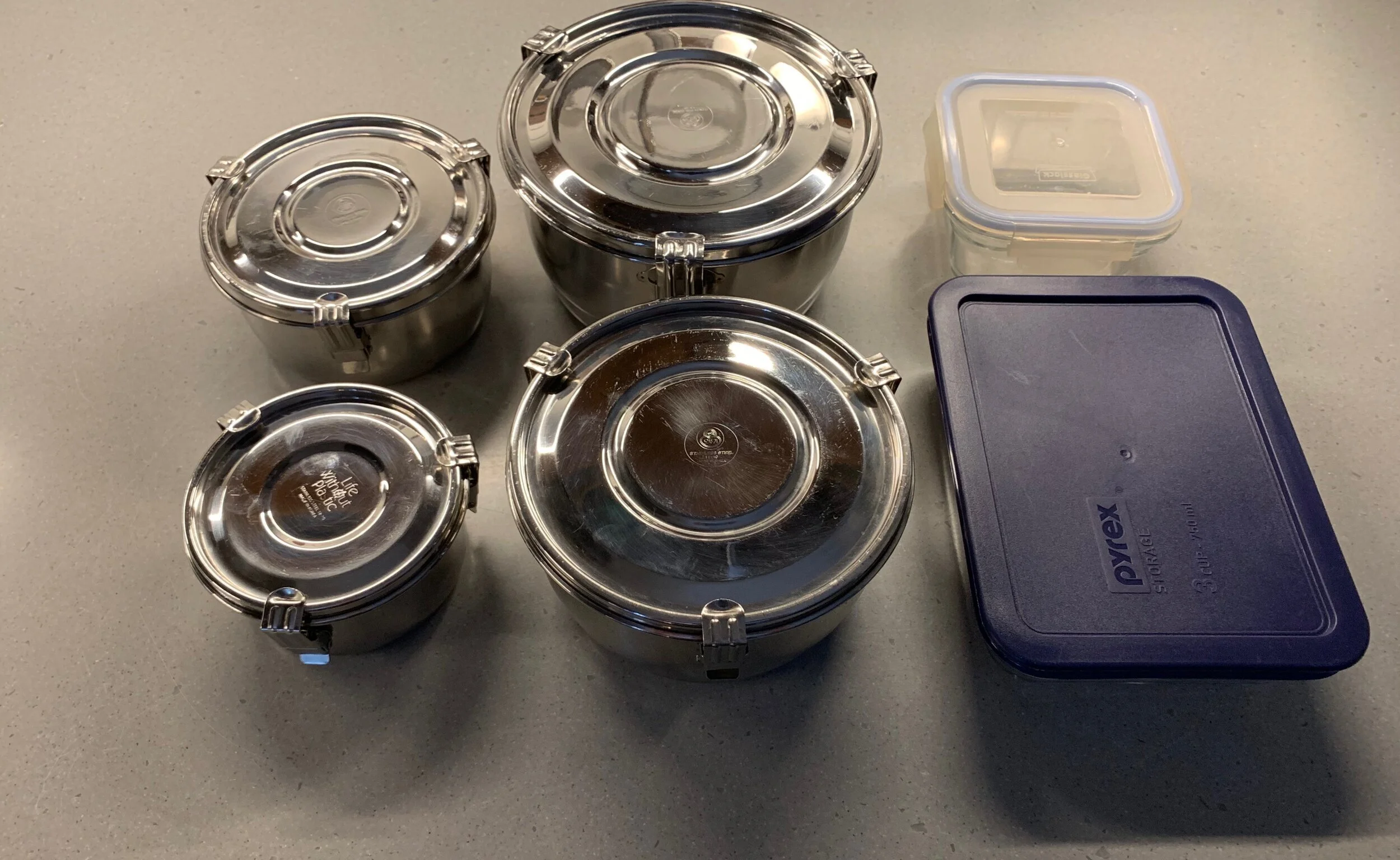Six Alternatives for Common Disposables.
A Skoy cloth, pictured here, can also supplement paper towel and can prove especially convenient in the kitchen, where they can be cleaned in a dishwasher.
Note: these recommendation apply to homes without illnesses of all forms; in the event you household contains an ill individual, consult your local or national health authority.
In wake of the recent pandemic, an increasing number of shoppers began stockpiling disposable and or perishable goods, including such items as plastic food bags, multi-purpose wipes and other similar items. Because of this increased demand and higher than average prices, in some instances so called “ price gouging “, many may find the implementation of reusable alternatives helpful. There are numerous environmental solutions that eliminate the need for these increasingly scarce purchases that provide more value, effectiveness, and have less environmental impact.
A variety of reusable food containers, all of which can supplement plastic wraps and bags.
Among the items commonly stockpiled in these times are disposable plastic food bags, from such brands as Ziplock and Baggies; these bags are often used at relatively high rates and subsequently must be repurchased regularly. However, unlike many other disposable household goods, these bags are not irreplaceable and can be supplemented by reusable options, such as resealable silicone bags, which can be placed in the dishwasher and come in various sizes. Material bags with an interior liner can also be purchased and often come in larger, more flexible sizing.
Another common disposable kitchen good, plastic wrap, is also replaceable by an environmental alternative, while providing a resort from hoarding during the pandemic. Glass containers available with reusable glass or silicone tops provide an alternative for leftover food.
Another versatile option is the use of flexible bowl covers designed to cover variously shaped bowls and other containers that do not come with lids; these covers are particularly functional for individuals who have unusual bowls and other containers that require flexibility. There are an increasing variety of environmental solutions remedying this issue, including an increasing number of beeswax based wrapping products; these products are often advertised as a solution for storing produce in the refrigerator for longer periods of time.
Paper towel is another, different form of disposable, that though sometimes necessary, can be supplemented so as to decrease the rate of use and prevent shortages. By placing cloths, such as cotton rags, old towel, or purpose made microfibre cloth bins with used and unused sections in paper towel dependent areas of the house like the kitchen, paper towel can become secondary. These bins are then emptied of used cloths and filled with newly washed ones on a regular basis.
Tissues also can prove difficult to obtain during the crisis as well and are being stockpiled; however, tissues can also be supplemented through the use of Handkerchiefs.
Handkerchiefs carried by each member of the family can reduce dependance on tissue, and replacing tissue around the home with boxed handkerchiefs, sold by several small companies, can all but eliminate tissues.
By using these new methods and routines, commonly stockpiled goods can be rationed far more effectively, save money in the long run and decrease you environmental footprint.
Note; follow only in accordance with World Health Organization guidelines for your circumstances.


